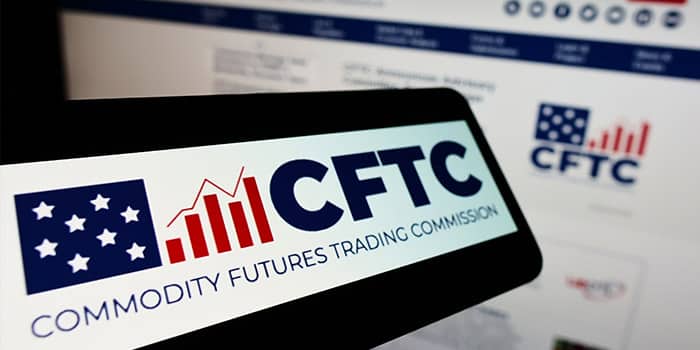- Casino
- By State
- Alabama
- Alaska
- Arizona
- Arkansas
- California
- Colorado
- Connecticut
- Delaware
- Georgia
- Florida
- Hawaii
- Idaho
- Illinois
- Indiana
- Iowa
- Kansas
- Kentucky
- Louisiana
- Maine
- Massachusetts
- Maryland
- Michigan
- Minnesota
- Mississippi
- Missouri
- Montana
- Nebraska
- Nevada
- New Hampshire
- New Jersey
- New Mexico
- New York
- North Carolina
- North Dakota
- Ohio
- Oklahoma
- Oregon
- Pennsylvania
- Rhode Island
- South Carolina
- South Dakota
- Tennessee
- Texas
- Utah
- Vermont
- Virginia
- Washington
- West Virginia
- Wisconsin
- Wyoming
- By State
- Slots
- Poker
- Sports
- Esports
Fact-checked by Angel Hristov
Study Uncovers Trend of US Bettors Prioritizing Wagering over Stocks
While the allocation of funds toward betting grows the study uncovered that investments in stocks, bonds or savings accounts decrease

Since 2018, when the expansion of sports betting across the United States started, millions of Americans gained access to legal forms of the activity. This paved the way for sponsorships between sportsbooks and sports teams, and ways for states to generate revenue for educational programs.
At the same time, while betting was often available through black market operators, now, legalization helps channel the consumers toward the licensed sector, where they are better protected. Despite all the benefits, the expansion of betting resulted in a surge of gambling helpline calls across the country, while fears about addiction continue to rise.
To make matters worse, a new study uncovers another aspect betting has affected the lives of millions of families across the US. The newly released study which is the result of collaboration between experts from the Brigham Young University – Department of Finance, the University of Kansas – School of Business and Northwestern University, highlights the impact of betting on vulnerable households.
The white paper, titled “Gambling Away Stability: Sports Betting’s Impact on Vulnerable Households,” estimates the impact of legal sports betting on household investments, spending, as well as debt management.
Spending on Sports Betting Impacts Savings and Investments
Concerningly, the research uncovered that a significant increase in betting activities has been observed since the expansion in 2018 which caused a notable decrease in investments. “This increase does not displace other gambling activity or consumption but significantly reduces households’ savings allocations, as negative expected value risky bets crowd out positive expected value investments,” reads the new study.
To put it simply, the increase in betting activities doesn’t affect other gambling activities. Instead, the sharp increase in betting, which is after all gambling that is likely to result in losses over time, affects funds for savings and investments with positive returns such as bonds, savings accounts, stocks and more.
“Importantly, we find that increased online sports betting substitutes primarily for positive expected value risky investments,“
reads the recently released study
Financially Constrained Households Are Mostly Affected
Households that face financial constraints are more likely to decrease their positive expected value investments. Such investments are generally recognized as ones that would have a positive return in the long run, while gambling remains the precise opposite.
Besides the increase in betting spending and decrease in investments, households that face economic difficulties are further negatively affected. They “become further constrained as credit card debt increases, available credit decreases, and overdraft frequency rises,” the report “Gambling Away Stability” explains.
“Notably, sports betting drives a large decrease in net deposits to traditional brokerage accounts, especially among financially constrained households,“
explains the study
The notable shift from investments to betting sounds the alarm about the detrimental impact of the activity on the economic capabilities of households across the US. The research recommended lawmakers consider methods that will encourage savings with the help of programs for financial literacy, or tax incentives, for example.
The researchers wrote that policymakers across the country should analyze the way sports wagering diverts funds which otherwise would go to investment accounts. Such analysis would be pivotal for the effectiveness of policies that would encourage long-term wealth accumulation and financial stability.
William Velichkov is a research-driven writer. His strengths lie in ensuring factual accuracy, vetting government documentation and reaching out to regulators and other officials. He is particularly fond of financial reporting, the sports betting industry, B2B partnerships and esports betting developments. William is a strong asset to the Gambling News team as he adds a bedrock to our reporting.
Previous Article

Sports
August 16, 2024
AGA Hails 14th Consecutive Quarter of Growth with Gaming Revenue Hitting $17.63B

Must Read
More Articles




Casino
April 18, 2025
Florida HB Seeking to Upgrade Illegal Gambling Punishments

Legal
April 17, 2025
Appeal to Keep Evolution’s Accuser Anonymous Denied

Lottery
April 17, 2025
CTLC Says Its Members Didn’t Violate the Texas Law













